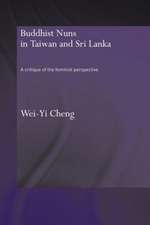Clouds above the Hill: A Historical Novel of the Russo-Japanese War, Volume 3
Autor Shiba Ryōtarō Editat de Phyllis Birnbaum Traducere de Juliet Winters Carpenteren Limba Engleză Paperback – 16 dec 2014
Volume three finds Admiral Tōgō continuing his blockade of Port Arthur. Meanwhile, a Japanese land offensive gains control of the high ground overlooking the bay as the Russians at last call for a ceasefire. However, on the banks of the Shaho River, the Japanese lines are stretched, but the Russian General Kuropatkin makes a decision to flank the troops to the left and in doing so encounters Akiyama Yoshifuru’s cavalry.
Anyone curious as to how the "tiny, rising nation of Japan" was able to fight so fiercely for its survival should look no further. Clouds above the Hill is an exciting, human portrait of a modernizing nation that goes to war and thereby stakes its very existence on a desperate bid for glory in East Asia.
| Toate formatele și edițiile | Preț | Express |
|---|---|---|
| Paperback (4) | 144.42 lei 6-8 săpt. | +21.61 lei 4-10 zile |
| Taylor & Francis – 16 dec 2014 | 179.19 lei 3-5 săpt. | +21.61 lei 4-10 zile |
| Taylor & Francis – 16 dec 2014 | 225.61 lei 17-23 zile | +20.95 lei 4-10 zile |
| Taylor & Francis – 16 dec 2014 | 144.42 lei 6-8 săpt. | |
| Taylor & Francis – 15 dec 2014 | 147.95 lei 6-8 săpt. | |
| Hardback (4) | 464.94 lei 6-8 săpt. | |
| Taylor & Francis – 10 dec 2012 | 464.94 lei 6-8 săpt. | |
| Taylor & Francis – 29 noi 2013 | 578.45 lei 6-8 săpt. | |
| Taylor & Francis – 29 noi 2013 | 584.05 lei 6-8 săpt. | |
| Taylor & Francis – 10 dec 2012 | 715.73 lei 6-8 săpt. | |
| Mixed media product (1) | 1336.17 lei 6-8 săpt. | |
| Taylor & Francis – 15 oct 2013 | 1336.17 lei 6-8 săpt. |
Preț: 144.42 lei
Preț vechi: 171.64 lei
-16% Nou
Puncte Express: 217
Preț estimativ în valută:
27.64€ • 28.78$ • 23.36£
27.64€ • 28.78$ • 23.36£
Carte tipărită la comandă
Livrare economică 10-24 martie
Preluare comenzi: 021 569.72.76
Specificații
ISBN-13: 9781138858923
ISBN-10: 1138858927
Pagini: 392
Ilustrații: 2 black & white illustrations, 2 black & white halftones
Dimensiuni: 156 x 234 x 21 mm
Greutate: 0.56 kg
Ediția:1
Editura: Taylor & Francis
Colecția Routledge
Locul publicării:Oxford, United Kingdom
ISBN-10: 1138858927
Pagini: 392
Ilustrații: 2 black & white illustrations, 2 black & white halftones
Dimensiuni: 156 x 234 x 21 mm
Greutate: 0.56 kg
Ediția:1
Editura: Taylor & Francis
Colecția Routledge
Locul publicării:Oxford, United Kingdom
Public țintă
Professional Practice & DevelopmentNotă biografică
Shiba Ryōtarō (1923-1996) is one of Japan's best-known writers, famous for his direct tone and unflinching depictions of war. He was drafted into the Japanese Army, served in the Second World War, and subsequently worked for the newspaper Sankei Shimbun. He is most famous for his numerous works of historical fiction.
Translated by Juliet Winters Carpenter
Edited by Phyllis Birnbaum
Translated by Juliet Winters Carpenter
Edited by Phyllis Birnbaum
Recenzii
"Shiba Ryōtarō is Japan’s best-loved author, and Clouds above the Hill is his most popular and influential work. In it he celebrates the transformative spirit of Meiji Japan and examines Japan’s unexpected victory in the Russo-Japanese War, providing a thoughtful and thought-provoking perspective on those dramatic times and the people at their center. This distinguished translation of a modern classic is a landmark event." - Donald Keene, University Professor Emeritus, Columbia University, USA.
"Shiba Ryōtarō wrote that from the Meiji Restoration of 1868 through the Russo-Japanese War of 1904-1905, Japan transformed its premodern "brown sugar" society into a modern "white sugar" one, eagerly scooping up crystals of the new substance in the drive to create society anew. During the Pacific War, by contrast, the nation’s leaders merely went through empty motions, and Japan collapsed. This book looks back on that earlier era through the lens of the later tragedy, depicting the struggles and growth to maturity of Japan’s young men." - Tanaka Naoki, former Member of the Japanese Parliament and President of the Center for International Public Policy Studies, Japan.
"When the Russo-Japanese War was over and Japan had won, the commanding generals from both sides came together face to face at Suishiying. They paid honor to each other’s bravery and expressed mutual condolences, and before parting they shook hands. I have visited that very place, which seems to me less the site of a Japanese victory than a monument to the souls of fallen soldiers on both sides. I have no doubt that Clouds above the Hills was also written to honor those souls." - Anno Mitsumasa, author and illustrator of children’s books in Japan.
"Quite simply, this is an incredible read that succeeds on all levels. I'm not a huge fan of history, but Ryotaro's telling of it flows beautifully, such that sometimes I forgot I was reading anything other than a work of fiction. At the same time, the sheer level of detail matches anything Tom Clancy has written, but without getting bogged down in too much technical detail the way Clancy's work often can. It also never loses sight of the human aspect of events, either at home in Japan, or overseas fighting or preparing for war... I found myself at a loss returning to the real world. This may be a book published in several volumes, but I defy anyone to read just one." - Iain Wear, The Bookbag, January 2013.
"Shiba Ryōtarō wrote that from the Meiji Restoration of 1868 through the Russo-Japanese War of 1904-1905, Japan transformed its premodern "brown sugar" society into a modern "white sugar" one, eagerly scooping up crystals of the new substance in the drive to create society anew. During the Pacific War, by contrast, the nation’s leaders merely went through empty motions, and Japan collapsed. This book looks back on that earlier era through the lens of the later tragedy, depicting the struggles and growth to maturity of Japan’s young men." - Tanaka Naoki, former Member of the Japanese Parliament and President of the Center for International Public Policy Studies, Japan.
"When the Russo-Japanese War was over and Japan had won, the commanding generals from both sides came together face to face at Suishiying. They paid honor to each other’s bravery and expressed mutual condolences, and before parting they shook hands. I have visited that very place, which seems to me less the site of a Japanese victory than a monument to the souls of fallen soldiers on both sides. I have no doubt that Clouds above the Hills was also written to honor those souls." - Anno Mitsumasa, author and illustrator of children’s books in Japan.
"Quite simply, this is an incredible read that succeeds on all levels. I'm not a huge fan of history, but Ryotaro's telling of it flows beautifully, such that sometimes I forgot I was reading anything other than a work of fiction. At the same time, the sheer level of detail matches anything Tom Clancy has written, but without getting bogged down in too much technical detail the way Clancy's work often can. It also never loses sight of the human aspect of events, either at home in Japan, or overseas fighting or preparing for war... I found myself at a loss returning to the real world. This may be a book published in several volumes, but I defy anyone to read just one." - Iain Wear, The Bookbag, January 2013.
Cuprins
Part 5 Translated by Juliet Winters Carpenter; Chapter 1 203-Meter Hill; Chapter 2 On the High Seas; Chapter 3 Shuishiying; Chapter 4 Heigoutai; Part 6 Translated by Juliet Winters Carpenter; Chapter 5 Heigoutai, Continued; Chapter 6 Yellow Funnels; Chapter 7 Grand Espionage; Chapter 8 Nogi’s Army Goes North; Chapter 9 Chinhae Bay; Chapter 10 The Indian Ocean; Chapter 11 On to Mukden;
Descriere
Clouds above the Hill is one of the best-selling novels ever in Japan, and is now translated into English for the first time. Volume III finds Admiral Tōgō continuing his blockade of Port Arthur. Meanwhile, a Japanese land offensive gains control of the high ground overlooking the bay as the Russians at last call for a ceasefire. However, on the banks of the Shaho River, the Japanese lines are stretched, but the Russian General Kuropatkin makes a decision to flank the troops to the left and in doing so encounters Akiyama Yoshifuru’s cavalry.



























